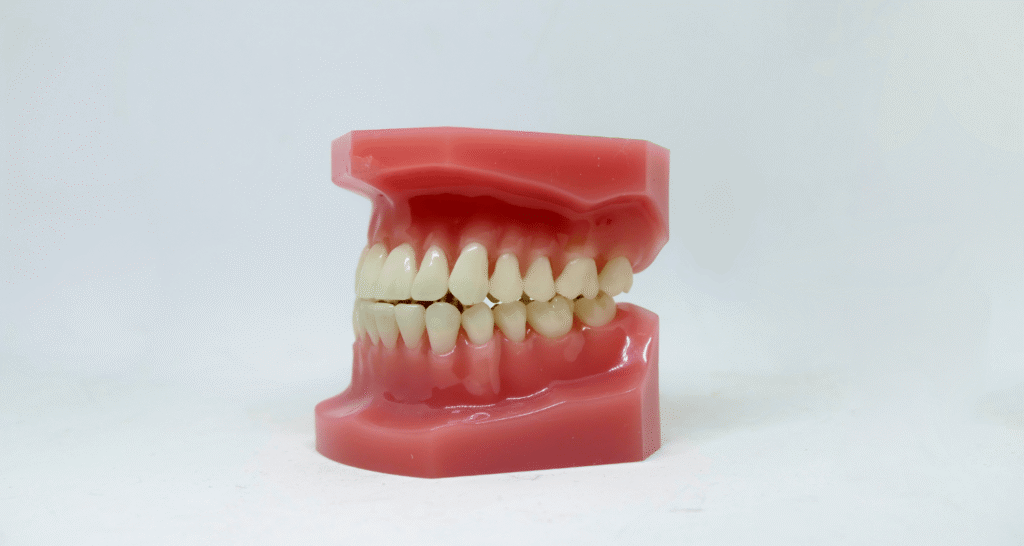Does Chewing Gum Prevent Cavities?
Chewing gum may seem just to make your breath fresher, but does chewing gum prevent cavities? The answer is yes – chewing gum for cavity prevention is an effective remedy. Particularly, sugar-free gum can avert cavities by activating the production of saliva, which decreases acids, clears away food remnants, and helps fortify the enamel.
This fact implies that using chewing gum is a straightforward and natural method of keeping your teeth safe throughout the day and after meals, especially when you can easily find that the acid level has increased. Some types of gums also contain such ingredients as xylitol, which actively kills harmful bacteria of the mouth and contributes to long-term oral health.
Gum is not a substitute for brushing and flossing, but gum to prevent cavities can be a great tool in dental care practices. Knowing when to use and when to chew it can matter as to whether you will keep a strong and decay-free smile.
1. Chewing Gum Stimulates Saliva: Your Mouth’s Natural Defense
The first layer of protection of your body against cavities is saliva. When one chews gum, the salivary flow is increased, and this assists in neutralizing acids, washing food particles, and enameling the teeth. This natural defense is even more critical at post-meal times when the acid content goes higher and your teeth need it the most. Some of the ways chewing gum prevents tooth decay are as follows:
- Helps wash away food particles
- Neutralizes harmful plaque acids
- Supports enamel remineralization
- Prevents dry mouth discomfort
- Aids in digestion and overall oral balance
2. Sugar-Free Gum Helps Prevent Tooth Decay
Sugar-free chewing gum is a clever weapon against cavities. The harmful bacteria do not just nurture it, but also usually include such ingredients as xylitol, which attacks the plaque. In case of its frequent use, it may keep the mouth clean and take care of the teeth between brushings. Gum for teeth cleaning must have the following features:
- Does not encourage bacterial growth
- It tends to include xylitol or erythritol
- It helps in diminishing plaque and acid formation
- Aids in enamel remineralisation
- Safe to use every day.Safe for everyday use

3. Benefits of Chewing Gum for Teeth
There is more beyond fresh breath in chewing gum. It promotes your general dental health because it aids to clean your mouth, curbs craving, and maintains a strong set of teeth. It is a small but useful routine that would bring improved oral health on a daily basis, particularly in cases when brushing is not possible.
- To remove hard-to-get spaces during brushing
- Eliminates urges for sugary snacks
- Combats dry mouth and bad breath
- Aids in the maintenance of pH in the mouth
- Instant freshness and comfort
4. Best Gum for Oral Health: What to Look For
Not every gum can be healthy. Orally, the healthiest gum is the sugar-free one that can be prescribed by dentists. If you experience issues like gum bleeding, consult your dentist for guidance on the safest options. Search for gums that include ingredients to safeguard enamel and bacteria-reducing agents for a clean mouth. Your teeth can greatly benefit from selecting the appropriate gum.
- ADA-approved or dentist-recommended options
- Contains xylitol or calcium phosphate
- Free from artificial sugars and acids
- Offers long-lasting flavor and effectiveness
- Designed to support enamel health
5. Natural Cavity Prevention Methods That Work With Gum
Gum is of assistance, although it is most effective when used in conjunction with routines that are beneficial to the mouth. Seeing the dentist, brushing, flossing, and keeping oneself hydrated are all cavity risk reducers. These natural methods, together with the chewed gum, make the environment that the teeth are exposed to stronger and healthier.
- Use fluoride toothpaste two times a day
- Clean the spaces between the teeth by flossing every day
- To drink water during the day
- Consume foods that do not harm your teeth, such as cheeses and greens
- Visit your dentist twice a year
Also See: Can Mouthwash prevent cavities?
6. Gum for Dentures: Safe Options for Oral Care
Chewing gum is not out of reach for people with dentures. Denture wearers are designed to have special formulas that are soft and not sticky. These preserve moisture, freshen the mouth, and prevent oral discomfort without destroying dental appliances. Regular oral cancer screening is also important to maintain overall oral health alongside daily denture care.
- Add dentures to the non-stick soft gum
- Assists with the loss of moisture and dry mouth, as well as irritation
- Safe and effective freshens breath.
- Safely and effectively freshens breath
- Aids the comfort of denture wearers at night
- Frontiers sugar-free. Available as sugar-free and xylitol

7. Bubble Gum vs. Functional Gum
Bubble gum can be cool, but it’s not a very good thing for your teeth. The majority of the conventional gums include sugar and an acidic taste, which destroy tooth enamel. Functional gum, in its turn, is designed to maintain dental health and help avoid cavities, and thus is a better everyday alternative.
- Bubble gum often contains cavity-causing sugar.
- Acidic flavors can wear down enamel.
- Functional gums are sugar-free and pH-balanced
- Xylitol-based gums reduce bacteria and plaque
- Choose health benefits over sweet taste
8. When to Chew Gum for the Best Results
The use of gum to clean the teeth matters over time. Chewing should be done after eating, and at that time, the acid is at its greatest. 10 to 20 minutes of chewing increases the amount of saliva and will help to save your teeth in the life-threatening phase.
- After lunch, dinner, or breakfast, chew
- Minimize the duration of a chewing session, not exceeding 20 minutes
- In case of pain in the jaw, do not chew anything
- Have some gum in your bag, car, or desk
- Apply as an alternative to brushing when one is not able to brush
9. How Chewing Gum Fits Into Your Dental Hygiene Routine
Gum would not and cannot be used as a substitute, but it only best fits as an add-on. Consider it a go-anywhere, any time teeth upgrade. When used correctly, gum can ensure that you have a cleaner mouth during the day and that you have a low risk of developing a cavity.
- Use gum in between meals to offer extra defense
- Brush and Floss even in the mornings and evenings, like usual times
- After meals, rinse with water
- Do not count on gum as a cleaner
- Visit your dentist regularly to be given some care guidelines
10. Final Thoughts: Can Gum Prevent Cavities?
Well, gum can work as a really good anti-cavity agent but only of the right type. Xylitol gum milk can assist in making saliva, kill bacteria, and bear enamel. Good dental habits together with chewing gum is a very effective tool in lifelong oral health that is very easy to use.
At Dental Faith, we always recommend:
- Choose sugar-free xylitol-based gums.
- Combine gum use with brushing and flossing
- Drink plenty of water to support saliva flow
- Avoid sugary and acidic bubble gum
- Make gum a daily dental hygiene habit
FAQs
Can chewing gum stop cavities?
Yes, chewing gum with or without xylitol, sugar-free, can be used as a way to decrease the risk of cavities. It elevates saliva, which can eradicate acids and aid in cleaning the teeth.
What gum can reverse cavities?
Xylitol-containing gum can also assist remineralization of initial cavities through the increase of saliva flow. Yet, it cannot get deep decay out, and that is only the work of a dentist.
Does chewing gum have any benefits?
Minting sugar-free gum would clean up breath, enhance saliva, and facilitate digestion.
It can also be a way of limiting stress and protecting teeth in the intervals between brushings.
How to permanently prevent cavities?
Brush your teeth twice a day, make sure you floss your teeth often, and avoid sugary food. Cavity prevention is lifelong and is best achieved through regular dental maintenance and fluoride application.
